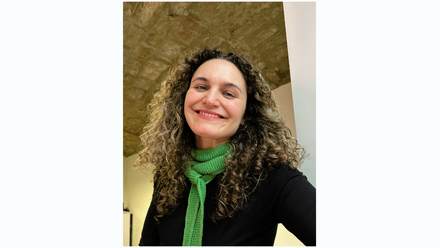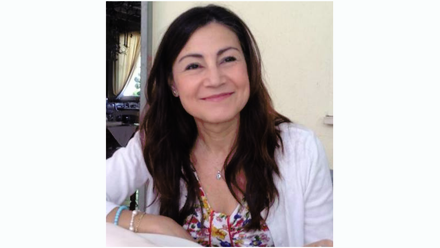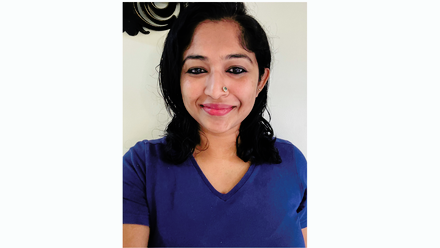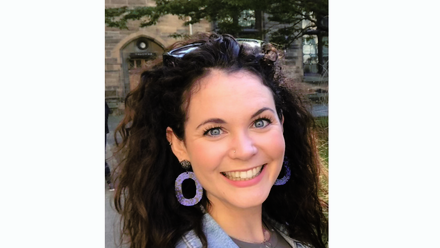Learning the business
Helen Wagner found that the most useful things she learned from her translation degree went beyond translation alone.
Taking a year out in September 2019 to complete an MA in translation several decades after my first languages degree was, I thought, a sound way to ensure I could make a living as a freelance translator. After all, I have years of work experience under my belt, I know how to manage staff, plan projects, transform working practices…oh, and I speak French. So how hard could it be?
I chose to study at the University of Surrey for several reasons: it was commutable (I have no desire to live the student life in my 50s), it offered compulsory modules on translation technologies (essential for someone educated in the ‘Stone Age’ as my grown-up children pointed out), and it had a business module. At the time, that last point seemed like more of an added bonus than an essential. But in fact, some of the most important things I learned from the course came in sessions that focused on topics other than translation alone.
The Surrey course certainly taught us how to translate; we tackled all the skills and competencies for that side of the business. However, it is a business; and it was the business module which really offered a unique combination of a reality check and essential, practical tips for working life in the real world. We had a unique opportunity to hear about the industry first-hand from the LSPs themselves.
The Translation MA currently partners with Surrey Business School, which helps further. Without the benefit of industry insight and practical advice for freelancing as part of the degree, we would have had to learn the hard way that every agency website asks for years of experience, and that in reality the elusive holy grail of direct clients requires careful specialisation and targeted networking.
Understanding the wider context of the job
The first few sessions of our business module, however, established a clear picture of the challenges that translators face and both the threats and opportunities posed by the growing sophistication of machine translation and other technologies.
To someone like me, with a background in business improvement, finding out about the need to navigate multiple layers of the industry was somewhat disheartening - second only to discovering that the industry is largely unregulated. As I had previously worked in professional regulation and studied hard for the MA, I found it disappointing to discover that anyone can call themselves a translator, with no qualitative measure or regulatory safeguard - thank goodness for organisations like ITI. Understanding the competition is, however, crucial to building a successful business.
As part of learning about how to present ourselves as entrepreneurs in a crowded field, it was made clear to us just how important it is to create a niche as a freelancer. Despite being an introvert by nature, I found myself being prompted to network (only through LinkedIn and email at the moment!), follow up every potential contact and think in a way that was somewhat alien to me. However, the course itself offered easy access to helpful LinkedIn connections, in the form of weekly talks from businesses and LSPs.
Working together each week
These weekly sessions were followed by a group collaborative challenge. In normal circumstances, we would have worked together in two groups, to solve a real business challenge for a local language provider and present solutions to the chief executive at a final session.
Before I started on the MA, I had rather taken for granted my own work-related skills (planning and managing tasks, presenting with PowerPoint, speaking to an audience, and so on). Working with people who had graduated more recently, and didn’t have an equivalent level of experience, reminded me how many undergraduate degrees do not prepare people for the world of work.
Some had no previous work experience at all; they often didn’t realise how important it was to be reliable, to carry out their particular task and/or to turn up to meetings on time. The group task forced such matters into focus - I imagine that the student who turned up unprepared to present to a chief executive (albeit virtually) is unlikely to wish to do it again! The module provided a ‘safe’ environment for all of us, in which to learn by mistakes.
It also offered a Myers-Briggs personality questionnaire session, where I was helpfully reminded to tone down my rather rigid approach to forward planning (my family will be forever thankful - organising every detail of life a year ahead is not always appreciated). And of course this year the issues were compounded by the fact that the task had gone online, which made collaborative group work considerably more of a challenge.
Into the ‘real world’ (with coffee breaks)
And finally, it is now time to put those sessions to good use; because these days, it is just me, my laptop and the search for work - with an occasional trip down the road in my face mask for a takeout coffee when my own company becomes just too depressing.
Having originally viewed the MA as principally an academic exercise and a necessary hurdle to achieve the freedom that freelance status confers, I have been surprised and pleased to find that it has delivered so much more.
Obviously, the acid test will be this time next year when I am, with luck, gainfully employed on a variety of translation tasks. In the meantime, I am relieved to find I have enough knowledge to approach agencies and potential clients with confidence and hopefully stand out when I submit applications. I am also enjoying the fact that my children are finally impressed by my CAT tool capabilities and somewhat incredulous that I am considering using Instagram for my business. It makes all those hours of study and Zoom lectures worthwhile!
I realise that I am probably one of the lucky ones. My previous life has given me experience that I can use as a specialism, and it has proved helpful in getting on agency books and even finding a direct client (by accident, as is often the case). Yet without a doubt, I would not have known how to leverage any of this had I simply learned translation theory and practice. It is safe to say that without that business module I would have had no idea where to start.
This article first appeared in the January-February 2021 edition of the ITI Bulletin. Since then, Helen has added the following postscript.
Postscript
Even pre-armed with the lessons of an MA, going straight into freelance translating during a pandemic has proved a tall order. New entrants might want to bear in mind carefully the below graduate salary rates, tight deadlines and fierce competition for work. In the current situation, internships or translation-related in-house roles in LSPs might be a more realistic way to gain experience before setting up freelance. This also removes the stress of an inconsistent income when starting out and allows support from co-workers for anyone with little work-experience.'
About the writer

Helen Wagner has recently started out as a French to English freelance translator. She has a background managing transformation programmes in legal and financial professional regulation, an MA in Modern Languages and is a qualified project manager. Helen can be contacted via LinkedIn or at [email protected].
If you need support with the business side of getting your freelance career off the ground ITI offers training in this area.
Starting Work as a Translator or Interpreter - Free seminar
Setting Up as a Freelance Translator - online course






